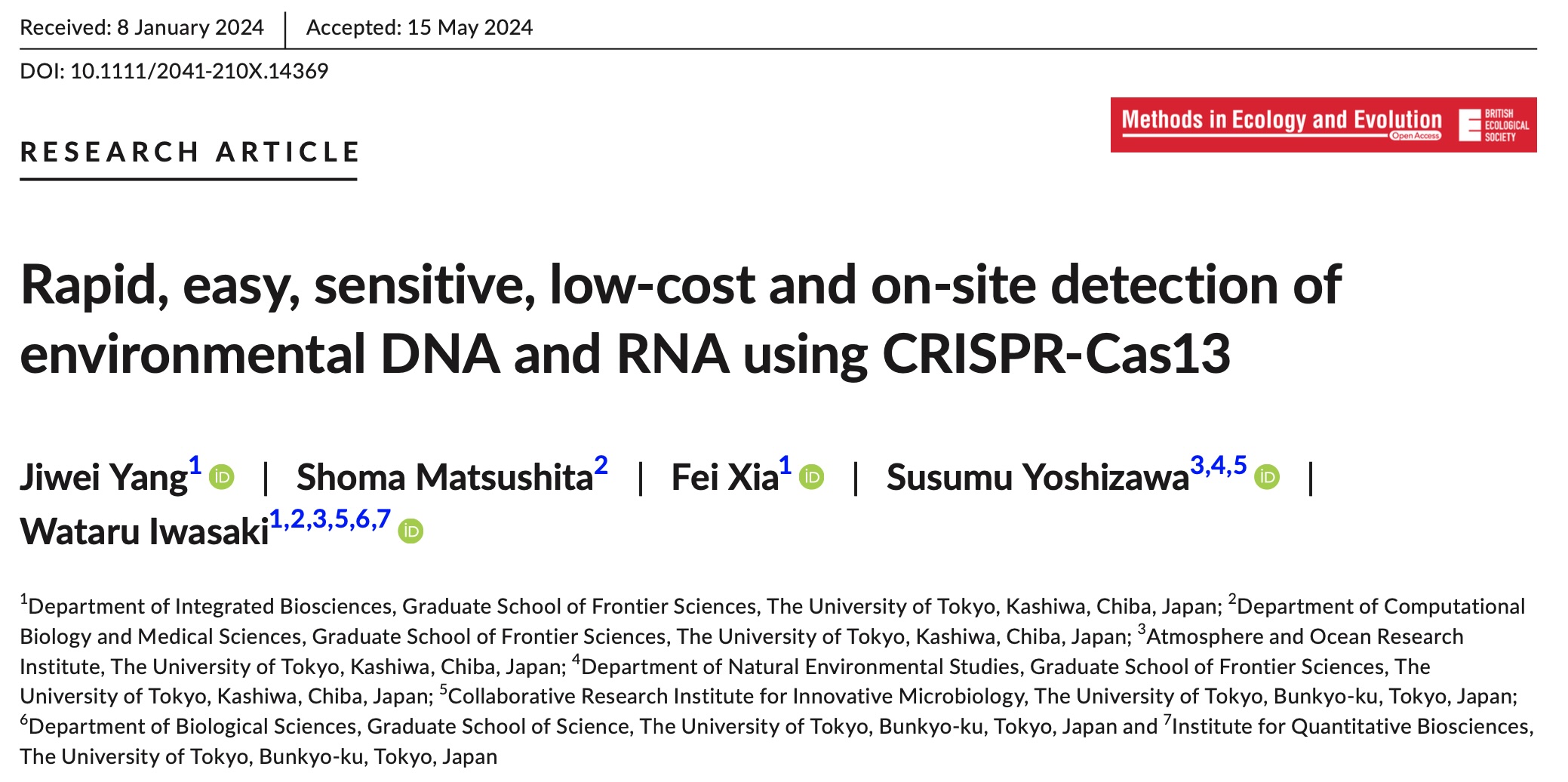NEWS
A Portable and Affordable CRISPR-Cas13-Based Method for Rapid On-Site Detection of Environmental DNA and RNA

In recent years, environmental DNA (eDNA) analysis—detecting traces of organisms such as DNA or RNA from water in rivers and ponds—has gained attention as a powerful tool for biodiversity conservation, including protecting endangered species and early detection of invasive species. However, conventional methods require expensive equipment and specialized skills, making on-site, rapid detection difficult. In this study, we developed a new eDNA/eRNA detection method using CRISPR-Cas13, an enzyme that recognizes and cleaves RNA. This technique enables detection without specialized instruments, using only reagents and a simple heating device, and delivers results in approximately one hour. Experiments targeting common carp and medaka demonstrated higher sensitivity than traditional qPCR methods, and incorporating RNA improved sensitivity by tenfold. The technique can be fully implemented in the field, costing approximately 1,500 yen (about $10 USD) per test. This technology's simplicity and affordability hold great promise for biodiversity monitoring, education, and citizen science applications.
https://besjournals.onlinelibrary.wiley.com/doi/10.1111/2041-210X.14369